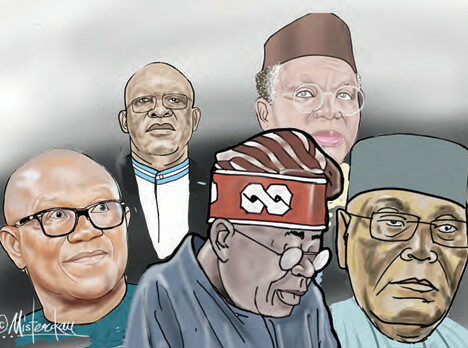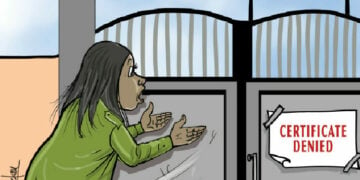Less than one and a half years to the next general polls, there seems to be a growing consensus that the South should be allowed to complete its eight years.
Because the presidency was controlled by the North from 2015 to 2023, it served all in the spirit of equity and justice not to violate the rule. Senator Bola Ahmed Tinubu is expected to throw his hat in the ring for a comeback bid in an election many predict may turn out to be a make-or-break.
The growing consensus for southern candidates is formidably anchored on the need not to jettison the rotation policy for political inclusion between the North and South. For those who want to violate the gentleman’s agreement on power sharing, rotational presidency is against the norms of democracy and promotes mediocrity.
Muddling Opposition
Not many believe that current efforts by the botched opposition to wrest power from Tinubu can stand the test of time. When in 2022, the former Lagos state governor declared for the presidency, he declared to the shock of his party leaders that, apart from God, he was key in bringing Buhari to power. A strong wind of denunciation ripped through the All Progressives Congress (APC), with some members of the party threatening to deal with him.
As it stands today, giving the ruling party a bloody nose by the opposition is fraught with dark prospects, as the unity and consensus required for electoral victory are absent. All attempts to deploy the Social Democratic Party (SDP) and Alliance for Democratic Congress (ADC) as coalition platforms have been rendered feeble and ineffective.
Disarray in ADC, SDP
The real owners of the ADC are engaged in a fierce struggle to recapture their party from those they describe as ‘political invaders’. The dream of the Senator David Mark-led Interim Management Committee of the ADC is gradually becoming forlorn. The Independent National Electoral Commission (INEC) has declared the new ADC leadership illegal.
The SDP is not trouble-free since the former governor of Kaduna State visited its Chairman. Party members are now pitched against one another and divided into various camps. The dialectics essential to the failure to create a strong opposition platform to challenge Tinubu in 2027 are hinged on the nature of our politics.
Between Jonathan, Obi
Some northern politicians who are not comfortable with the incumbent president are coming to terms with the dread of continuing the Tinubu presidency. Reading the times, they have concluded that only a southerner can dislodge the current president. Though serial presidential candidate Atiku Abubakar is still brimming with brimstone over his presidential project, efforts are being made to approach former President Goodluck Jonathan and the 2023 presidential candidate of the Labour Party (LP), Mr Peter Obi, for a possible electoral battle against Tinubu.
Jonathan is constitutionally allowed to serve only a single term. Obi is popular, but popularity does not win elections in Nigeria. The former Anambra governor needs the magic wand to translate his popularity into winning elections. To combat the times, Obi has to be in tune with current realities in confronting the political juggernaut in Tinubu.
Waiting Endlessly
Though the polls are far, yet so near. As of now, the prospects for assembling a strong opposition alliance are still in the realm of imagination. The problem again with an alliance lies in politics built on shifting sands of selfishness, devotion, and ideological leanings. For the opposition to succeed, it must heed the advice of Obi’s running mate in the 2023 poll, Senator Yusuf Datti Baba-Ahmed, who said defeating the incumbent president can only be feasible through the deployment of “the unthinkable”.
Of course, that doesn’t mean there are no divergent views within the APC about Tinubu’s comeback bid. However, those who hold the power are more aligned with Tinubu than the opposition, as elected politicians are flocking to the ruling party. In a system where democracy is controlled by politicians, the opposition’s voices are likely to be reduced to mere pleas for a spot at the table of political advancement.
Though democracy thrives with a vibrant opposition, sadly, those in the opposing camp are often seeking to regain relevance through negotiations rather than genuine opposition.
The success of current efforts to unseat Tinubu remains uncertain, driven as it is by personal ambition and propaganda. For the opposition to be effective, they must put aside their selfish interests, which are the root of the problem in our politics.











